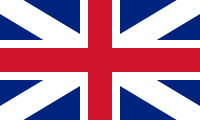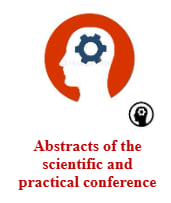| Romanovska L.А., Candidate of Law, Director, Chief Research Fellow in the field of jurisprudence at IPE LLC, https://orcid.org/0009-0004-6306-6936The driving force of science and trends in its development: collection of scientific papers «SCIENTIA» with Proceedings of the VII International Scientific and Theoretical Conference, November 8, 2024. Coventry, United Kingdom: International Center of Scientific Research (P.59-66). |
Generalised theses.
The methodology for proving the absence of competition on technical grounds is based on the following analysis processes:
Firstly, the study should establish the correspondence between the data on the subject matter of the procurement to be carried out and the data on the probable supply of goods (performance of works and provision of services) that can be provided by the participant as an exclusively defined business entity. A document containing initial data on the subject matter of procurement may be an order for an expert opinion, if the procurement entity directly applies to an expert institution for an expert opinion, or a letter from the procurement entity to the procurement participant, if the probable procurement participant directly applies to the expert institution for an expert opinion, fulfilling a kind of instruction given to it by the procurement entity to obtain an expert opinion by the said letter.
The data on the procurement to be carried out should contain a clear name of the procurement item with reference to a single procurement classifier, for example, procurement of goods for DK 021:2015 42120000-6 – Pumps and compressors; procurement of services for DK 021:2015 50530000-9 – Equipment repair and maintenance services, etc. In such documents, the procuring entity, while announcing its intention to carry out the procurement and to study the issue of the possible participation of the tenderer, must also outline the technical requirements for the subject of procurement, as well as determine which qualification criteria provided for in part two of Article 16 of the Law of Ukraine “On Public Procurement” [1] must be met by the tenderer.
Secondly, the study should establish the compliance of the participant’s powers in the procurement. If the procurement participant is not the manufacturer of the goods (contractor, service provider), the authorised company must have exclusive rights granted by the manufacturer of the goods (contractor, service provider) to participate, which are documented. In addition, the participant must provide a document (extract from the state or trade register, etc.) confirming its registration as a legal entity in the country of its residence.
Thirdly, taking into account the conclusions of the courts that the documentary justification of ‘lack of competition for technical reasons’ is considered to be more objective if it is based on external regulatory and/or technical documents adopted and/or approved by the competent authority in accordance with the law [9], the study should be based on the results of the analysis of the market for goods, works and services ordered to identify all possible suppliers of goods (contractors, service providers) to Ukraine that are the subject of procurement. Such market analysis should be based on data from customs databases and other possible sources. A specialised organisation must document its right of access to probable closed sources and the right to use their data in analytical work in order to prevent risks of refuting the results of the market analysis of goods (works and services). Therefore, the analysis of the market of goods, works and services should contain information on the sources from which the relevant information was obtained and on the authority of the specialised organisation to use the relevant data in analytical works if it was obtained from closed sources, since it is the result of the analysis of the market of goods (works, services) that refutes or proves the statement that the participant is the only supplier of goods (performer of works, provider of services) to Ukraine that are the subject of the procurement to be carried out.
Fourthly, the study must establish the tenderer’s compliance with the qualification criteria set by the procurement customer in accordance with part two of Article 16 of the Law of Ukraine “On Public Procurement” [1]. Compliance is established based on the documents provided by the tenderer. The scientific literature notes that a clear definition by the procuring entity of the qualification criteria and the list of documents confirming them allows avoiding practical problems and ambiguous understanding of the legal provision, namely: “…a method of documentary confirmation of the tenderer’s compliance with the qualification criteria in accordance with the law…” [10, с.62]. In the absence of a method of documentary confirmation by the participant of the relevant qualification criterion established by the procurement customer, the study is based on documents provided by the participant at its own discretion.
Conclusions. The developed methodology allows to ensure proper assessment of compliance with the absence of competition for technical reasons, which must be confirmed by the procurement customer in the case of participation of a non-resident participant in the procurement, in accordance with the fourth paragraph of subparagraph 5 of paragraph 13 of the Specifics No. 1178 or the first paragraph of paragraph 9 of the Specifics No. 1275, an expert institution that meets the following requirements: (1) has the relevant powers under the charter; (2) the qualifications, competence and authority of its experts are confirmed by documents; (3) is accredited and certified in accordance with the requirements DSTU EN ISO/IEC 17020:2019 (EN ISO/IEC 17020:2012, IDT; ISO/IEC 17020:2012, IDT) – Management systems of the inspection body; ISO 9001:2015, IDT (DSTU ISO 9001:2015) – Quality management systems; ISO 37001:2016, IDT (DSTU ISO 37001:2018) – Anti-corruption management systems; DSTU ISO/IEC 27001:2023 (ISO/IEC 27001:2022, IDT) – Information security management systems; (4) the risks of its activities are covered by a voluntary professional liability insurance contract in case of damage to third parties.














